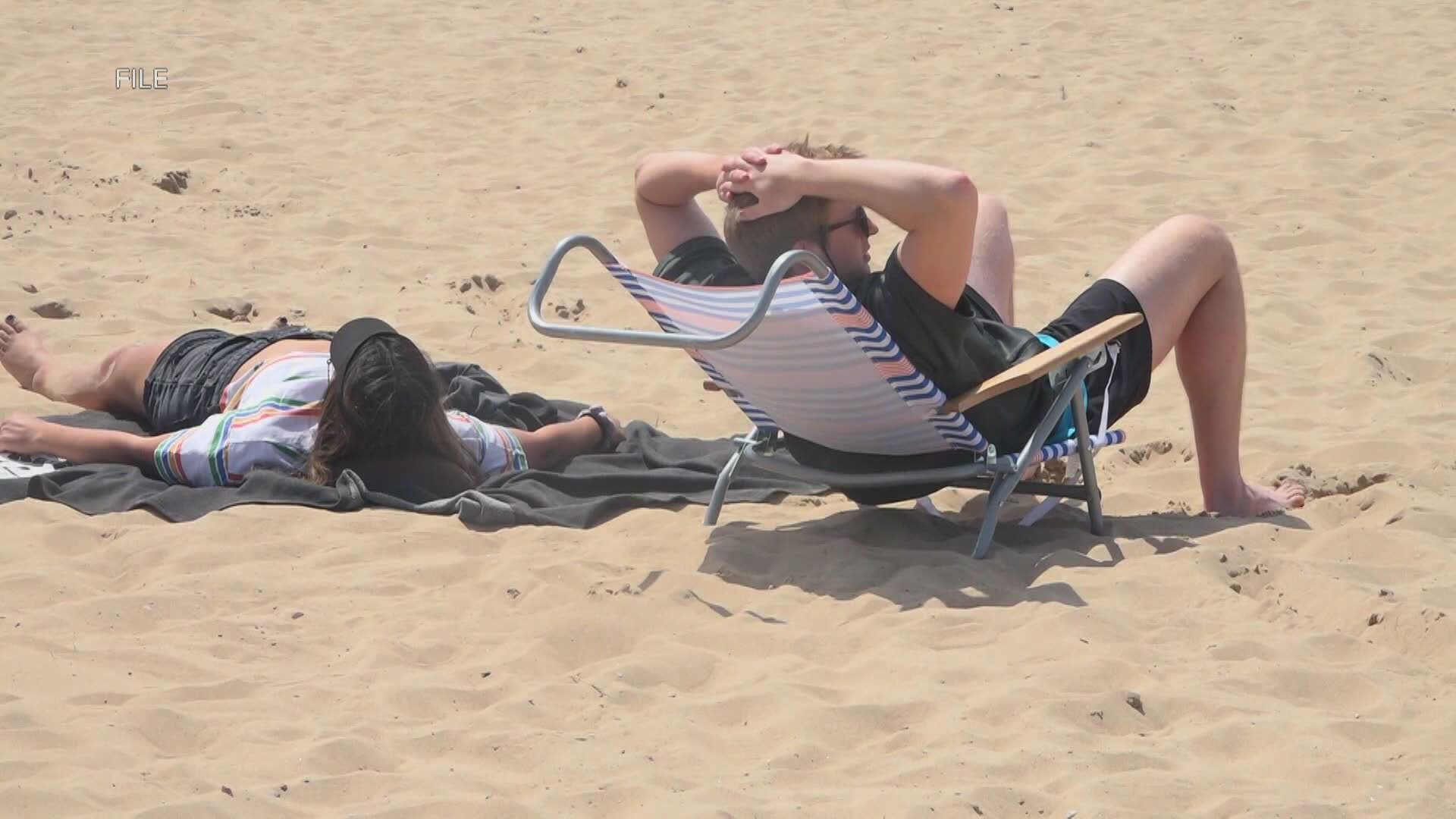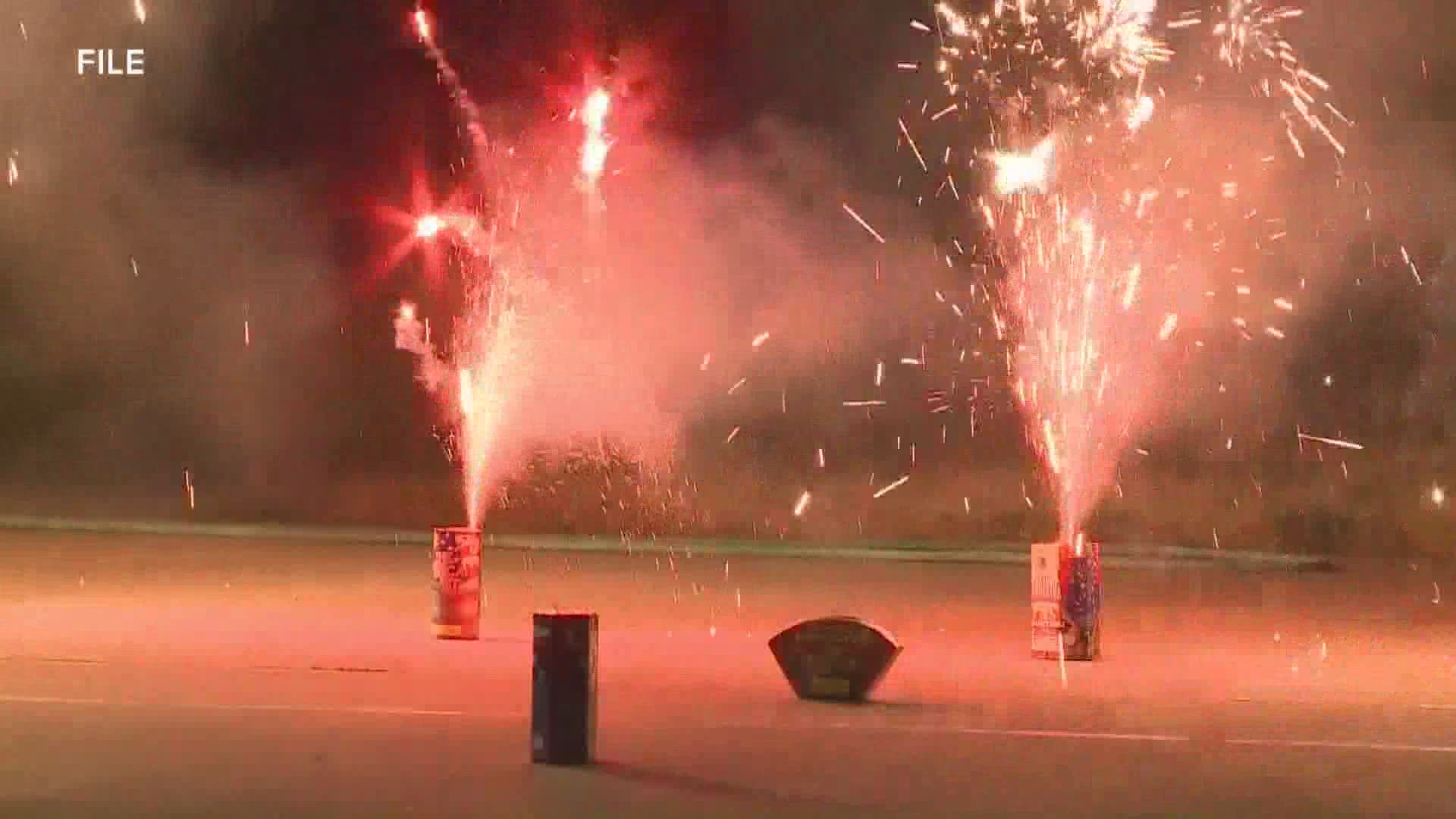GRAND RAPIDS, Mich. — Doctors and health officials warn the heat wave blanketing Michigan could be deadly and say it's not the only danger this Independence Day weekend. Emergency room doctors, in particular, are bracing for a busy couple of days.
"So we really want everybody to stay healthy and stay protected and have fun. We're going to always see a lot of trauma over the Fourth of July because people are out and they're having parties or playing with fireworks and firecrackers," says Dr. Erica Michiels, a pediatric emergency room attending for Helen DeVos Children's Hospital.
"I think the physicians who work during the daylight hours, on these kinds of days, especially in the pediatric emergency department know somebody is going to take care of a drowning case in the coming days. We just don't know which one of us it will be. We always expect to see that with these high temperatures and sunny days ahead. We are certainly expecting to see more water-related issues such as drowning and boating accidents."
RELATED: 6-year-old drowns at Millennium Park
Michiels, who also serves as the associate medical director for the pediatric emergency department, says water safety is among her top concerns over the holiday. She says she cannot stress enough how making smart choices can save lives.
“A lot of Michiganders are going to be headed to lakes and pools this weekend," she says. "I just want to remind everybody that alcohol and water recreation don't mix. Most cases where adults drown, alcohol is a factor. And you have to have eyes on those kids when they're in and around the water. Make sure there's a designated responsible adult who's watching those kids when they're in and around the water because it happens fast."
Another major concern is heat-related illness. Michiels says the extreme heat can cause severe illness and death. This comes as emergency room workers continue to deal with the coronavirus pandemic.
"Some things that we would usually recommend during a heatwave become more difficult during the COVID-19 outbreak," she says. "We can't go to cooling centers at churches and community locations the way that we have in the past, because again we don't want people congregating especially now that we know cases in Michigan are rising."
Michiels says this is a great time to remind people to be careful of how they spend their days.
"When we see this really high heat index, we certainly know that we may be seeing more cases of heat-related illness in our emergency department, both pediatric and adult," says Michiels. "If you have work you want to get done around the house or things you want to do outside, it's better to do those either early in the morning or late in the evening. Those are the times where the temperatures are going to be lower."
She advises people to take frequent breaks when they are outside and to stay well hydrated. Michiels says children and older people are especially vulnerable.
"Really listen to your body and what your body's trying to tell you," she says. "You're going to feel fatigued, sweaty, thirsty and maybe even a little dizzy. So if symptoms are setting in it's time to get out of heat and drink some cold beverage, put your feet up and relax. Once you start to move down the early stages of heat related illness, dizziness is going to get worse. You may in fact stop sweating and feel more dry and hot. Your temperature may actually rise like you have a fever. If you can't keep fluids down or are dizzy or confused that's when it's time to get to the emergency department as quickly as possible."
According to the Consumer Product Safety Commission, each year, an average of 180 people go to the emergency room every day with fireworks-related injuries around the Fourth of July holiday.
Michiels says they're preparing for that as well.
"We're ready for the burns and firework injuries like lacerations and that kind of thing. So we always know that the Fourth of July weekend is going to be a big one for us," she added.
A weekend, she hopes, can be both fun and safe for everyone.
"We don't want to come across like we don't want everybody to go out and have a great time. But, much of what we see, common sense could have prevented. So, we really would appreciate it if our advice was sometimes taken a little more seriously," says Michiels.
"We also understand that nobody goes out intending to cause an accident or to have an injury. We understand that these things happen. I do think, you know, just kind of take a step back and think about some common sense things that can help prevent accidents and injury and some of the really simple interventions can often prevent some of the most serious consequences that we see."
►Make it easy to keep up to date with more stories like this. Download the 13 ON YOUR SIDE app now.
Have a news tip? Email news@13onyourside.com, visit our Facebook page or Twitter. Subscribe to our YouTube channel.


